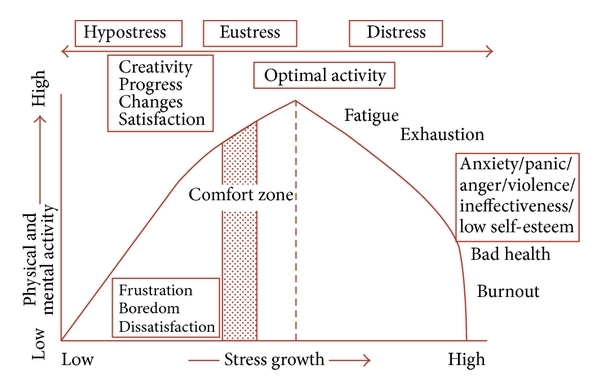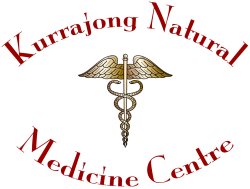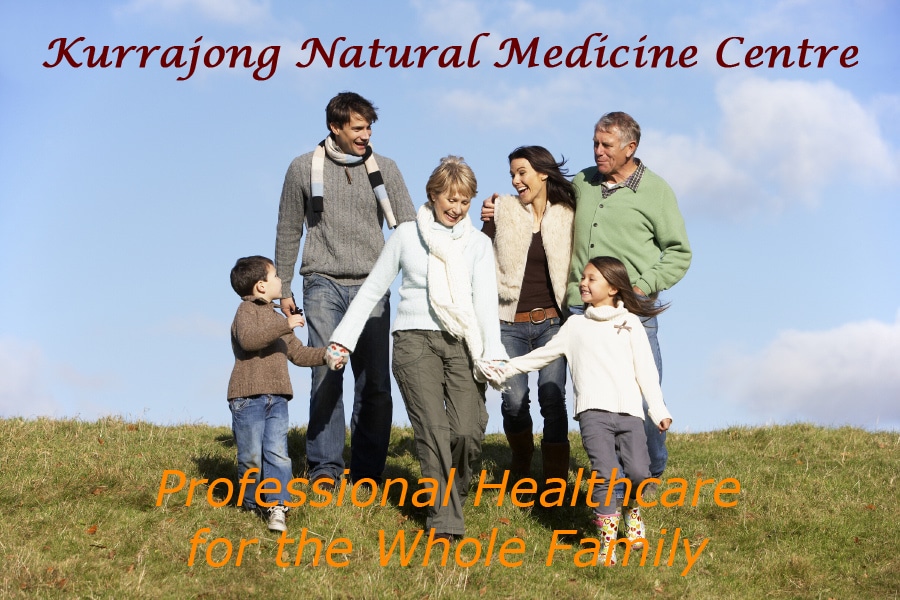Anxiety: A Chinese Medicine (CM) Perspective
Anxiety is a normal reaction to stress. In general, it helps one to cope. But when anxiety becomes an excessive, irrational dread of everyday situations, it has become a disabling disorder [1] and is high in prevalence, especially in the female population, whose incidence is approximately double that of the male population[2].
Anxiety disorders are the most prevalent of psychiatric disorders and afflict millions of people each year. It tends to be chronic, and the individual and social burden is high.
Under normal conditions (i.e. conditions that do not generate pathology) the stress response enables us to mobilise our resources effectively to meet an environmental challenge, following which the system returns to homoeostasis.
If the stressor is very intense, prolonged or occurs repeatedly, the individual exhibits the ‘General Adaptation Response’ (GAR). This is described as a continuum from a normal healthy response through to exhaustion and death if the effect of the stressor (or cumulative effect of combined stressors) is greater than the individual’s capacity to deal with it (Fig.1).

Figure 1 – Adopted from Human response to stress curve according to Nixon P Practitioner 1979 Yerkes RM
Stage one is the alarm reaction. This is followed by the stage of resistance, which is the stage where distress, both physical and mental, is experienced. This is followed by the stage of exhaustion, accompanied by overt pathology, which may readily lead to death if the stress continues and intervention is not sought.
Western medical science classifies anxiety disorders into the following:
- Generalised anxiety disorder (GAD)
- Panic disorder
- Social anxiety disorder
- Post-traumatic stress disorder (PTSD)
- Obsessive-compulsive disorder (OCD)
All the above disorders involve excessive, irrational fear, worry and dread.
GAD is an excessive, uncontrollable worry about everyday things. This constant worry affects daily functioning and can cause physical symptoms.
A panic attack (Distress) is defined as the abrupt onset of an episode of intense fear or discomfort, which peaks in approximately 10 minutes and includes at least four of the following symptoms [1]:
- a feeling of imminent danger or doom the need to escape
- palpitations
- sweating
- trembling
- shortness of breath or a smothering feeling a feeling of choking
- chest pain or discomfort
- nausea or abdominal discomfort
- dizziness or lightheadedness a sense of things being unreal, depersonalisation
- a fear of losing control or “going crazy” a fear of dying
- tingling sensations
- chills or hot flushes.
How Does Traditional Chinese Medicine (TCM) view Anxiety
The main aetiological factor in anxiety is obviously mental/emotional stress. In addition, constitutional and dietary factors also play an important role.
In TCM, psychiatric disorders such as anxiety, depression, post traumatic stress disorder and others, frequently relate to energetic disharmonies involving the so-called ‘Five Spirits’. These are the Hun (the eternal soul/spirit), the Po (the corporal spirit/consciousness), the Zhi (the will), the Yi (the intellect) and the Shen (the mind and the connecting spirit.) [3,4]
In TCM diagnosis, associated symptoms may be part of any of the following pathologies [3]:
Basically, the most common TCM Patterns involving anxiety include the Liver, Heart, Spleen and Kidney. These may occur as single patterns or more commonly in complex patterns where there is more than 2-patterns interacting.
- Liver constraint: Prolonged emotional strain (e.g. suppressed anger, inability to vent feelings) leads to Liver constraint.
- Heart deficiency: Loss of emotional balance or control, too much thinking or mental work depletes the Heart (Qi, Blood or Yin).
- Spleen deficiency: Excessive physical work, worrying or thinking depletes the Spleen Qi.
- Kidney deficiency: Prolonged fear reaction depletes the Kidney (Qi, Yin or Yang)
TCM doctors will identify the specific pattern affecting their patient and prescribe personalised treatment approach using acupuncture and/or Chinese herbs.
At Kurrajong Natural Medicine Centre our highly qualified and experienced team of practitioners are happy to develop a personalised treatment programme with you. Simply call (02)4573 0784
What You Can Do to Help Yourself
1. Seek help:
Talking to someone you trust about what’s making you anxious could be a relief. It may be that just having someone listen to you and show they care can help in itself. If you aren’t able to open up to someone close to you may contact your healthcare professional or Beyond Blue: https://www.beyondblue.org.au/ or Black Dog Institute: https://www.blackdoginstitute.org.au/resources-support/anxiety/help-support/
TCM treatments focus on restoring the balance and flow of Qi within the body. Some common approaches include:
- Acupuncture: Fine needles are inserted into specific points along the body’s meridian pathways to help regulate the flow of Qi, relieve stagnation, and promote a sense of calm and relaxation.
- Chinese Herbal Medicine: TCM practitioners may prescribe specific herbal formulas tailored to the individual’s pattern of imbalance. These herbal remedies aim to nourish deficient organs, clear heat or phlegm, and support emotional well-being.
- Western Herbal Medicine: A Western Herbalists approach will focus on supporting the nervous system, reducing stress, and promoting overall well-being. Some commonly used herbs and approaches include:
• Adaptogens: Adaptogenic herbs help the body adapt to stress and restore balance. Examples include Ashwagandha (Withania somnifera), Rhodiola (Rhodiola rosea), and Holy Basil (Ocimum sanctum). These herbs can help modulate the stress response, improve energy levels, and promote mental clarity.
• Nervine Herbs: Nervines have a calming effect on the nervous system and help alleviate symptoms. Examples include Chamomile (Matricaria chamomilla), Lemon Balm (Melissa officinalis), Passionflower (Passiflora incarnata), and Skullcap (Scutellaria lateriflora). They can help reduce nervous tension, promote relaxation, and improve sleep.
• Anxiolytic Herbs: Certain herbs have specific anxiolytic properties, helping to reduce symptoms and promote a sense of calm. Examples include Kava Kava (Piper methysticum), Valerian (Valeriana officinalis), and California Poppy (Eschscholzia californica). These herbs can be beneficial for acute anxiety or panic attacks.
• Aromatic Herbs: Aromatic herbs have uplifting and calming properties. They can help improve mood, reduce stress, and promote relaxation. Examples include Lavender (Lavandula angustifolia), Rosemary (Rosmarinus officinalis), and Lemon Verbena (Aloysia citrodora).
• Herbal Tea Blends: Herbal tea blends combining various calming herbs can be soothing and supportive. Combining herbs like Chamomile, Lemon Balm, and Lavender can create a relaxing and calming blend. - Dietary and Lifestyle Recommendations: TCM emphasises the importance of maintaining a balanced lifestyle and diet. Recommendations may include stress management techniques, such as meditation or Qi Gong, as well as dietary adjustments to support digestive health and nourish the body.
2. Sleep, Diet & Exercise:
- Try to get enough sleep. Sleep can give you the energy to cope with difficult feelings and experiences. See our page on coping with sleep problems for more information.
- Think about your diet. Eating regularly and keeping your blood sugar stable can make a difference to your mood and energy levels. See our page on food and mood for more information.
- Try to do some physical activity. Exercise can be really helpful for your mental wellbeing. See our pages on physical activity for more information.
3. Relaxation/Mindfulness/Meditation:
Relaxation/Mindfulness – taking time to be out in nature and have some ‘Me-Time’ away from the daily stressors is very important to maintain a balanced emotional state. Meditation is a learned tool that can help you gain insight into your mind-body state and recognise why you become anxious when exposed to certain triggers or stressors.
Other things you can consider are:
- Deep breathing exercises: Deep, diaphragmatic breathing can help activate your body’s relaxation response and reduce symptoms. Find a quiet place, sit or lie down comfortably, and take slow, deep breaths, focusing on fully expanding your abdomen as you inhale and gently releasing the breath as you exhale.
- Progressive muscle relaxation: This technique involves systematically tensing and relaxing different muscle groups to promote relaxation. Start by tensing and then releasing the muscles in your toes, gradually working your way up to your head and neck.
- Regular exercise: Engaging in physical activity on a regular basis can help reduce symptoms and improve your overall well-being. Aim for at least 30 minutes of moderate-intensity exercise most days of the week. Activities like walking, jogging, swimming, or yoga can be beneficial.
- Practice mindfulness or meditation: Mindfulness involves focusing your attention on the present moment without judgment. Meditation techniques, such as mindfulness meditation or guided imagery, can help calm your mind and alleviate symptoms. There are many smartphone apps and online resources available to guide you through mindfulness exercises.
- Maintain a balanced lifestyle: Ensure you’re getting enough sleep, eating a nutritious diet, and avoiding excessive consumption of caffeine, alcohol, and nicotine. These substances can worsen symptoms. Prioritize self-care activities, engage in hobbies, and make time for relaxation and leisure.
- Challenge negative thoughts: Practice identifying and challenging negative or anxious thoughts. Ask yourself if there is evidence to support these thoughts and consider more balanced and realistic perspectives. Cognitive-behavioral therapy techniques can be helpful in this regard.
- Seek support from loved ones: Talk to trusted family members or friends about your symptoms. Sometimes, verbalizing your worries and concerns can help alleviate their intensity. Their support and understanding can provide comfort and reassurance.
- Limit exposure to stressors: Identify and limit exposure to situations or triggers that contribute to your symptoms. This may involve setting boundaries, saying no to additional responsibilities when necessary, or reducing exposure to stressful environments.
- Consider relaxation techniques: Engage in activities that promote relaxation and stress reduction, such as listening to calming music, taking a warm bath, practicing aromatherapy, or engaging in activities you enjoy, such as reading or spending time in nature.
References
1. Marciocia, G. (1994) The Practice of Chinese Medicine: The Treatment of Disease with Acupuncture and Chinese Herbs, Edinburgh: Elsevier Churchill Livingstone.
2. Sniezek, D. P., & Siddiqui, I. J. (2013). Medical acupuncture, 25(3), 164–172. https://doi.org/10.1089/acu.2012.0900
3. Maciocia G. Principles and strategies of treatment. In: The Foundations of Chinese Medicine. London: Elsevier; 2005:1115–1132
4. [21] Kaptchuk TJ. The fundamental textures: Qi, Blood, Essence, Spirit and Fluids. In: The Web That Has No Weaver. New York: McGraw-Hill; 2000:59–66
Disclaimer
Disclaimer information for users of the Kurrajong Natural Medicine Centre, Namaste Yoga Kurrajong and The Herbal Health Coach website.
Page last updated: 26th June 2023
Information provided for education and research information only
The information on this website is presented by Kurrajong Natural Medicine Centre for the purpose of disseminating health information free of charge for the benefit of the public.
While Kurrajong Natural Medicine Centre has exercised due care in ensuring the accuracy of the material contained on this website, the information on the site is made available on the basis that Kurrajong Natural Medicine Centre is not providing professional advice on a particular matter.
This website is not a substitute for independent professional advice. Nothing contained in this site is intended to be used as medical advice and it is not intended to be used to diagnose, treat, cure or prevent any disease, nor should it be used for therapeutic purposes or as a substitute for your own health professional’s advice.
Kurrajong Natural Medicine Centre does not accept any liability for any injury, loss or damage incurred by use of or reliance on the information provided on this website.
Quality of information
Kurrajong Natural Medicine Centre makes every effort to ensure the quality of the information available on this website and updates the information regularly. Before relying on the information on this site, however, users should carefully evaluate its accuracy, currency, completeness and relevance for their purposes, and should obtain any appropriate professional advice relevant to their particular circumstances. Kurrajong Natural Medicine Centre cannot guarantee and assumes no legal liability or responsibility for the accuracy, currency, completeness or interpretation of the information.
The material may include the views or recommendations of third parties and does not necessarily reflect the views of Kurrajong Natural Medicine Centre or indicate a commitment to a particular course of action.
Links to other websites
This website contains links to other websites which are external to Kurrajong Natural Medicine Centre. Kurrajong Natural Medicine Centre takes reasonable care in selecting linking websites but Kurrajong Natural Medicine Centre accepts no responsibility for material contained in a website that is linked to this site. It is the responsibility of the user to make their own decisions about the accuracy, currency, reliability and correctness of information contained in linked external websites.
Links to external websites are provided for the user’s convenience and do not constitute an endorsement or a recommendation of any third party products or services offered by virtue of any information, material or content linked from or to this site. Users of links provided by this site are responsible for being aware of which organisation is hosting the site they visit.
Views or recommendations provided in linked sites may include the views or recommendations of third parties and do not necessarily reflect those of Kurrajong Natural Medicine Centre or indicate a commitment to a particular course of action. .



